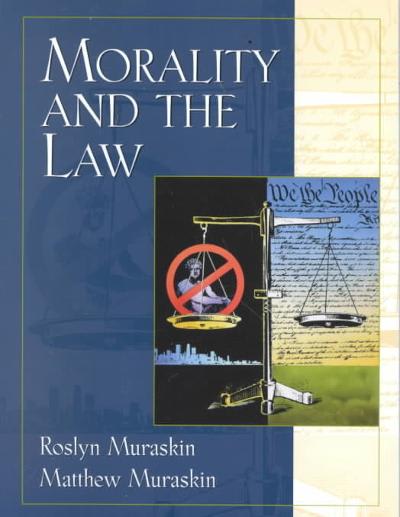Question
In January of 2018, Dr. Kenneth Bramlett, an orthopedic surgeon from Vestavia Hills, Alabama, decided to buy a bit more than a half-million dollars worth
In January of 2018, Dr. Kenneth Bramlett, an orthopedic surgeon from Vestavia Hills, Alabama, decided to buy a bit more than a half-million dollars worth of gold coins. He provided his name, address, Social Security number, a copy of his Alabama driver's license and a personal check from his account to Dillon Gage, a gold coin company in Addison, Texas. The check was signed by Dr. Bramlett's wife. Once Dillon Gage deposited the check and it cleared, they shipped the $549,000 of gold coins to Dr. Bramlett's address in Vestavia Hills. Dr. Bramlett then ordered an additional $655,000 worth of gold coins, for a total of $1,204,000 worth of gold. Orthopedics in Alabama must be lucrative. Of course, Dr. Bramlett had nothing to do with the order. Thieves stole checks from his mailbox, created a fictitious driver's license and, after Dillon Gage shipped the coins via UPS, the thief emailed UPS and asked them to hold the package at the local UPS facility rather than delivering it to Dr.
Bramlett. The thief picked up both packages of coins from the UPS facility. Because the checks were issued fraudulently, they were not honored by the Bramletts' bank. So Dillon Gage was out both the $1.2 million in coins and the payment for those coins. Fortunately, Dillon Gage, the gold coin company, had insurance. That insurance covered losses to "covered property" including shipping coverage for the gold coins. Perfect, thought Dillon Gage. The "loss" of the property was literally due to it being stolen from the UPS facility, which was due to the fraudulent email to UPS telling them not to deliver it and, instead, letting the fraudster pick up the package at the facility. Not surprisingly, the insurer saw things differently. They point to an exclusion within the contract which provides: "Notwithstanding anything contained herein to the contrary, this contract excludes any claim in respect of the property insured hereunder, where the loss has been sustained by the Insured consequent upon handing over such Insured property to any third party against payment by: Cheque ... where such Cheque ... shall prove to be false, fraudulent or otherwise invalid or uncollectible for any reason whatsoever. [emphasis added]. Ultimately, the question was "What the hell does 'consequent upon' mean?" Did the coin company lose $1.2 million because the coins were misdirected from the UPS store, or did the coin company lose $1.2 million because the check from Dr. Bramlett was invalid? New Shimmerit's a floor wax and a dessert topping! Both the trial court and the court of appeals found that the "bad check" exclusion applied to deny the coin company coverage for relying on the identity fraud. The court held that "but for" the bad check, the coin company would not be out the money. They noted, "Here, the fraudulent checks are a
but-for cause of the loss. Dillon Gage only shipped the two orders of coins after (and because) the bank checks cleared. And it did so pursuant to a company policy of ensuring checks clear before shipping to new customers." Sure, but for the fraudulent checks, they would not have shipped the coins. But also but for the theft of the coins from UPS, they would not have been out the money. If there had been no misdirection of the coins from UPS, the Bramlett's would have received $1.2 million of gold coins, which they would have been obligated to return to the coin company. So was the "loss" due to the theft, or the bad check? Or the identity fraud? Applying Texas law, the trial court found that where there were two concurrent causes to the loss, the insurer did not have to pay, but where there were two independent causes of the loss, the insurer did have to pay. The trial court found the bad check and the UPS fraud to be concurrent causes of the loss, letting the insurer off the hook. The federal appeals court decision on February 16, 2022, noted that "Dillon Gage's losses were consequent upon its handing over-insured property to UPS against a fraudulent check. And UPS's alleged mishandling of the shipment was a concurrent cause of loss, dependent upon Dillon Gage's own conduct in handing over the gold coins against fraudulent checks." As a result, the fifth circuit court noted, "Dillon Gage is therefore not entitled to coverage ..." Once again, companies that think they have coverage for things like computer crime, data theft, business email compromise, identity fraud, false impersonation and other criminal activities and thefts may find that their insurance coverage is not as extensive as they think and that the exclusions are broader than they think. They are also finding that, to get coverage, they may have to go to court and sue their carrier. And even then, there's no guarantee of success.
QUESTION: Do we have a holder or a holder in due course? Why?
Step by Step Solution
There are 3 Steps involved in it
Step: 1

Get Instant Access to Expert-Tailored Solutions
See step-by-step solutions with expert insights and AI powered tools for academic success
Step: 2

Step: 3

Ace Your Homework with AI
Get the answers you need in no time with our AI-driven, step-by-step assistance
Get Started


